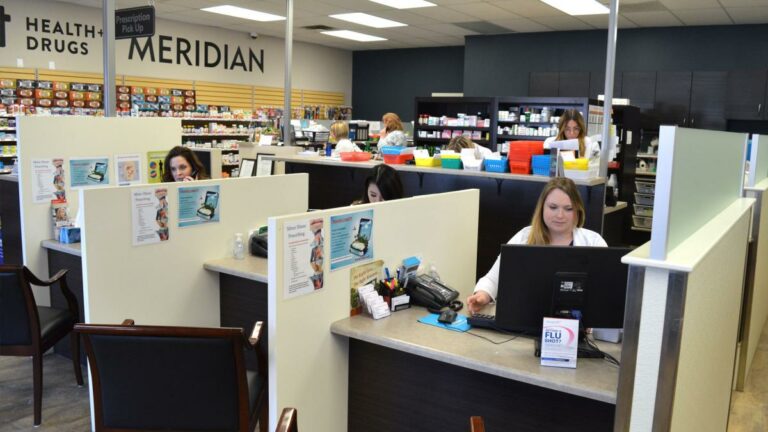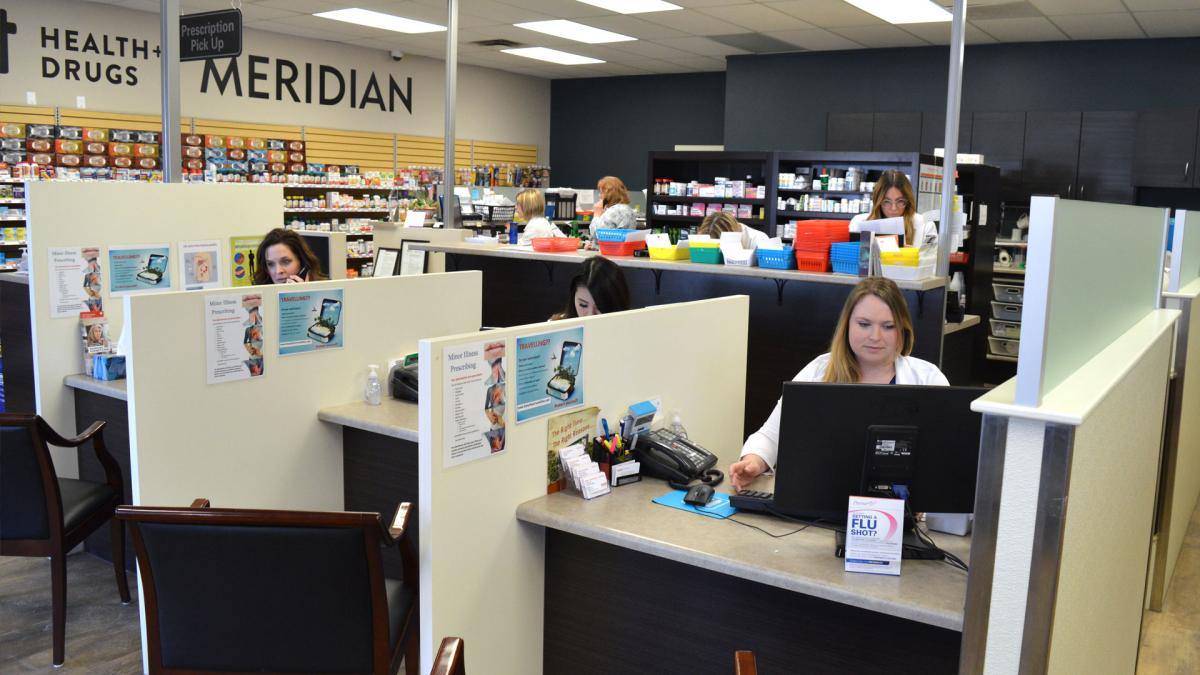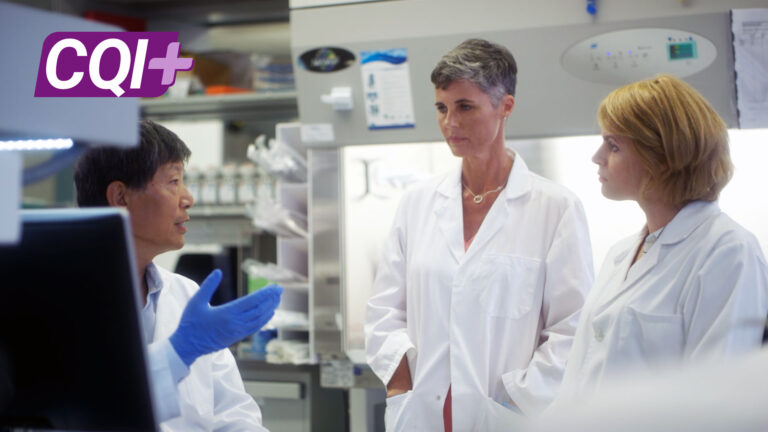
When you first walk in the Mint Health + Drugs Meridian Pharmacy in Stony Plain, you’ll notice something different right away. Right up front, there are three semi-private counselling areas with pharmacists engaged with patients.
The workflow at Meridian is almost opposite that of most community pharmacies. The first contact a patient has is with a pharmacist, who performs what owner and licensee Carlene Oleksyn calls the clinical check.
“That involves a subjective assessment with the patient, and an objective assessment through Netcare and the patient’s profile,” Carlene said. “For a patient who is here all the time, the pharmacist will pull up their care plan right away to see where they’re at and the last thing we talked about with them. Often, if it’s an initial prescription that is received, the pharmacist does their clinical check and their counselling at the same time.”

While the pharmacist is conversing with the patient and documenting information into their care plan, the pharmacy technicians in the dispensary begin working on processing the prescription and performing a final technical check. Since the pharmacist has already assessed and counselled the patient, a pharmacy technician can dispense the medication.
“Usually by the time we’ve finished conversing with the patient and made sure the medication is appropriate, indicated, and effective for their goals of therapy, the medication is usually ready, so it doesn’t add any more time for the patient,” said Robyn Van Winssen, one of five clinical pharmacists on staff.
The pharmacy technicians at Meridian are empowered to work to their full scope of practice and are an integral part of the team.
“It feels great, that I’m doing the job I’m trained to do,” said Aysha Seagrave, pharmacy technician at Meridian. “I believe that technicians are the dispensing specialists on the team. Being trusted to do that job means a lot.”
Carlene’s team works together effectively and efficiently to provide care. She notes that in many pharmacies, pharmacist assessments often take place at the end of the workflow, just before the drugs are dispensed to the patient. That can end up wasting everyone’s time if the pharmacist discovers a problem.
“Your pharmacy technicians and assistants have spent all this time preparing the drugs. They’re ready to go. And now you’ve got to go all the way back in your workflow again, with the pharmacist doing the clinical assessment, making the changes they need to make, and talking to the physician; or the pharmacist adapts the prescription and your team starts the whole process over again,” said Carlene. “You could have solved that problem by doing the assessment up front.”
At the beginning of her career, Carlene spent more time doing technical work than clinical. Now, she focuses on providing clinical care, which she believes is critical for the future of the profession. Carlene says pharmacists need to provide more to patients than simply information about drugs.
“When I got out of pharmacy school 20-some years ago, no one had access to information,” she said. “Information was valuable. I had the information. Now, thanks to technology, everyone has information. If all we’re doing is giving out information, we are done as a profession. Assessments are the key.”




